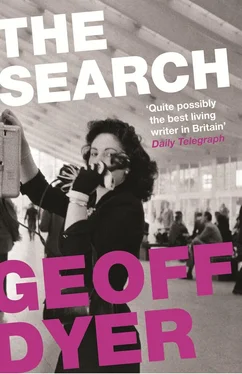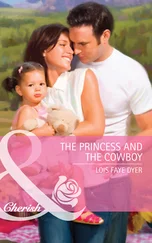Geoff Dyer - The Search
Здесь есть возможность читать онлайн «Geoff Dyer - The Search» весь текст электронной книги совершенно бесплатно (целиком полную версию без сокращений). В некоторых случаях можно слушать аудио, скачать через торрент в формате fb2 и присутствует краткое содержание. Год выпуска: 2013, Издательство: Canongate Books, Жанр: Современная проза, на английском языке. Описание произведения, (предисловие) а так же отзывы посетителей доступны на портале библиотеки ЛибКат.
- Название:The Search
- Автор:
- Издательство:Canongate Books
- Жанр:
- Год:2013
- ISBN:нет данных
- Рейтинг книги:3 / 5. Голосов: 1
-
Избранное:Добавить в избранное
- Отзывы:
-
Ваша оценка:
- 60
- 1
- 2
- 3
- 4
- 5
The Search: краткое содержание, описание и аннотация
Предлагаем к чтению аннотацию, описание, краткое содержание или предисловие (зависит от того, что написал сам автор книги «The Search»). Если вы не нашли необходимую информацию о книге — напишите в комментариях, мы постараемся отыскать её.
The Search — читать онлайн бесплатно полную книгу (весь текст) целиком
Ниже представлен текст книги, разбитый по страницам. Система сохранения места последней прочитанной страницы, позволяет с удобством читать онлайн бесплатно книгу «The Search», без необходимости каждый раз заново искать на чём Вы остановились. Поставьте закладку, и сможете в любой момент перейти на страницу, на которой закончили чтение.
Интервал:
Закладка:
When he had crossed to the far side he looked back at the bridge rising and falling in the blue air.
That night he slept by the roadside and cycled on as soon as the sun shuddered clear of the horizon. Late in the afternoon, his legs wobbly after so long on the bike, he rode into a city where there were no people, only streets — narrow, cobbled, crossed by even narrower streets that led to rain-damp alleys and dead-ends. Torn posters advertised political meetings and sporting events. There were parked cars but no sign of the people who drove them. A few shops had their shutters pulled down but most were open for business as usual. As he opened the door of a pâtisserie a little bell rang like a wind-chime. The shelves were half-empty with bread and cakes. He took a croissant that tasted as if it had been fresh-baked that morning. Took two more and walked out of the shop, still chewing, flakes of pastry falling to the floor. The street was divided sharply into sunlight and a tide of shadow inching towards the opposite wall. Riding along the cobbled streets was so awkward that he left the bike where it was, propped against the shop window.
He came to a large square. In the middle was a water fountain, a statue of a dragoon or fusilier wading through it, sword raised above his head. He wore a cloak, armour breastplate and knee-length leather boots — under one of which was trapped a flapping fish: not a dragon or serpent but a playful and, apparently, undistressed fish. Despite the raised sword there was no suggestion that this aggressive posture indicated any ill-will towards the fish. He just happened to be brandishing a sword and treading on a fish which squirmed good-humouredly beneath his feet, as if it were being tickled rather than squashed.
Walker dunked his head in the bubbling water, his face level with the bemused eye of the fish. Fingered back his wet hair, feeling the cold drips on his neck and shoulders. The shadows cast by the buildings on one side of the street climbed the walls of those on the other. He hoped to come across some indication of what had happened here but apart from the absence of people everything was completely normal.
Halfway down a street of expensive shops he went into a place called Hombre. He flicked through rows of jackets and trousers and then stripped off and unwrapped a pair of underpants. Next he extricated a shirt from the pins, cardboard and cellophane and put that on, then a pair of cotton socks hanging on a rail. He tried on a suit jacket which fitted perfectly. The trousers were too big round the waist so he took a pair from the suit that was the next size down. He took his time choosing a tie, finally deciding on one that was a sober grey with light spots. In the basement he found a pair of suede shoes with thick soles — comfortable, easy to run in. Back upstairs he picked out another shirt, extra pairs of underpants and socks, a sweat-shirt and a pair of cotton trousers which he crammed into a bag. His old clothes seemed like sour-smelling rags now and he dumped them in a bin.
As he was leaving he noticed the till. He pressed a few buttons and the cash-drawer sprang open. He helped himself to a few notes and some change, pushed the till shut and stuffed the money into a pocket.
Outside the street was flooded with shadow. Only the third storeys and above were still in the sharp-angled sunlight. Newspapers and bags of garbage were piled up, awaiting collection on the sidewalk. Nearby, rustling in the breeze, were lengths of film that had obviously overflowed from a dustbin. The further he walked the more film there was, coiling round his feet, twitching like two-dimensional snakes. He picked up one of the strips and held it up to the light, the brown shine turning immediately to brilliant colour. The film showed a man walking down an old street. All the other strips were blank or damaged: nothing to be seen. He coiled the original strip loosely around his arm and walked on until he came to a bar. Just inside the door was a flashing pinball machine. He walked round the bar and took a beer from the fridge, helped himself to a sandwich from beneath a glass lid.
Alternating between mouthfuls of beer and sandwich he hoisted himself on to the bar, feet resting on a stool. He held the film up to the light, squinted at the sequence of images. Peering closely he saw it was not a street but a bridge with elaborate decorations. The last few frames, as far as he could make out, showed the man stopping at a pay-phone at the far side of the bridge. As soon as he put the length of film down on the bar it curled up reflexively like a threatened animal.
It was almost dark by the time he left the bar. Sleepy, unsure of his bearings, clutching his bag of clothes, he began looking for a place to stay the night. He ignored the smaller houses: in this unusual position he could treat himself to somewhere lavish. Now that it was evening the city seemed almost ordinary, like an especially quiet Sunday night when people had retreated indoors.
A telephone was ringing in the distance. As he turned a corner the ringing got louder: the pay-phone across the street. The intervals between rings became longer and longer the closer he moved to the phone. It was unnerving, a payphone ringing like this. One day there would be a superstition about how it was bad luck to pick up a phone ringing randomly. Superstitions needed centuries to establish themselves. He walked past the phone, resisting the temptation to answer, but the ever-expanding lasso of rings continued to encircle him as he moved away. He felt like he had refrained from waking someone in the grips of a nightmare. When he was almost out of earshot he hesitated, unsure if it was still ringing, and walked back towards the silent phone.
At the far end of a cul-de-sac he let himself through a groaning iron gate. A line of cypresses ran along the side of a path which stretched to a low wall at the other end of the garden. Too tired to investigate the grounds, he walked round the edge of the house. He came to a large patio with a sun umbrella and chairs. An open door led to a conservatory, full of plants he recognized but couldn’t name: leaves, stems. He walked in through the humid air of the plants and into the house, cautious, still unused to this licence to go where he pleased. He peered into living and dining rooms and made his way upstairs.
The bathroom was exactly what he had hoped for: a large oval bath, thick towels hanging on chrome rails. Pink and green bottles of lotion gave the air a sweet sensual smell. He twisted the hot tap and steaming water cascaded immediately into the bath. In the bedroom next door he took off his new clothes and chucked them on the floor. On a bedside cabinet was a framed wedding photo: a couple on the steps of a country church, making their way through a snow-storm of confetti. At the edge of the photo was a woman he thought was Rachel, throwing confetti, laughing. Her hair was different, she looked heavier: impossible to tell for sure. Next to her was a man whose face was obscured by the blurred arm of another confetti-throwing guest.
Walker took the photo into the bathroom. The feel of hot water, fresh idl on his back. Through the pebbled window he could see a square of dark-blue sky which, like the glass of the photo, was becoming saturated with steam. He dismantled the frame and took out the photo, hoping to find something written on the back. Nothing. He lay back in the dreamy steam of the bath, holding the photo in damp fingers, staring.
CHAPTER EIGHT
He had no idea of the time when he awoke: the shutters were open but heavy curtains excluded the light which gushed in when he drew them back. He could see the red-tiled roofs of the town, washing lines and TV aerials. From here the buildings appeared jammed so closely together that there seemed scarcely to be any roads separating them. In the distance hills basked under a calm sky.
Читать дальшеИнтервал:
Закладка:
Похожие книги на «The Search»
Представляем Вашему вниманию похожие книги на «The Search» списком для выбора. Мы отобрали схожую по названию и смыслу литературу в надежде предоставить читателям больше вариантов отыскать новые, интересные, ещё непрочитанные произведения.
Обсуждение, отзывы о книге «The Search» и просто собственные мнения читателей. Оставьте ваши комментарии, напишите, что Вы думаете о произведении, его смысле или главных героях. Укажите что конкретно понравилось, а что нет, и почему Вы так считаете.












